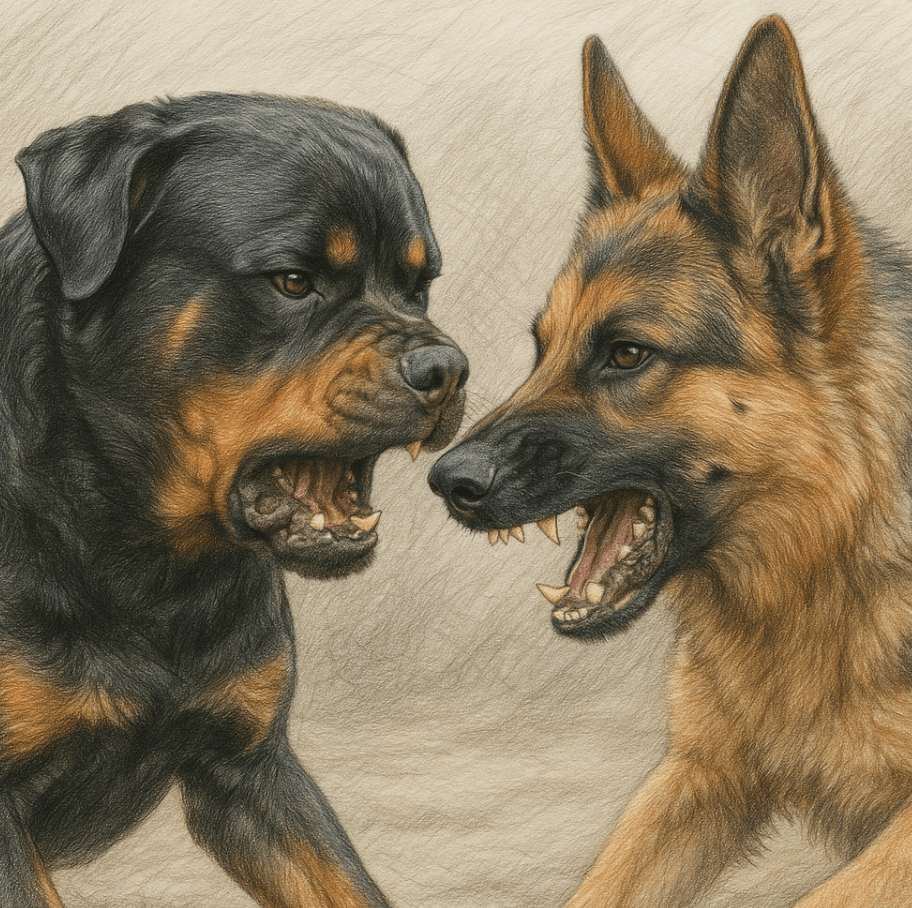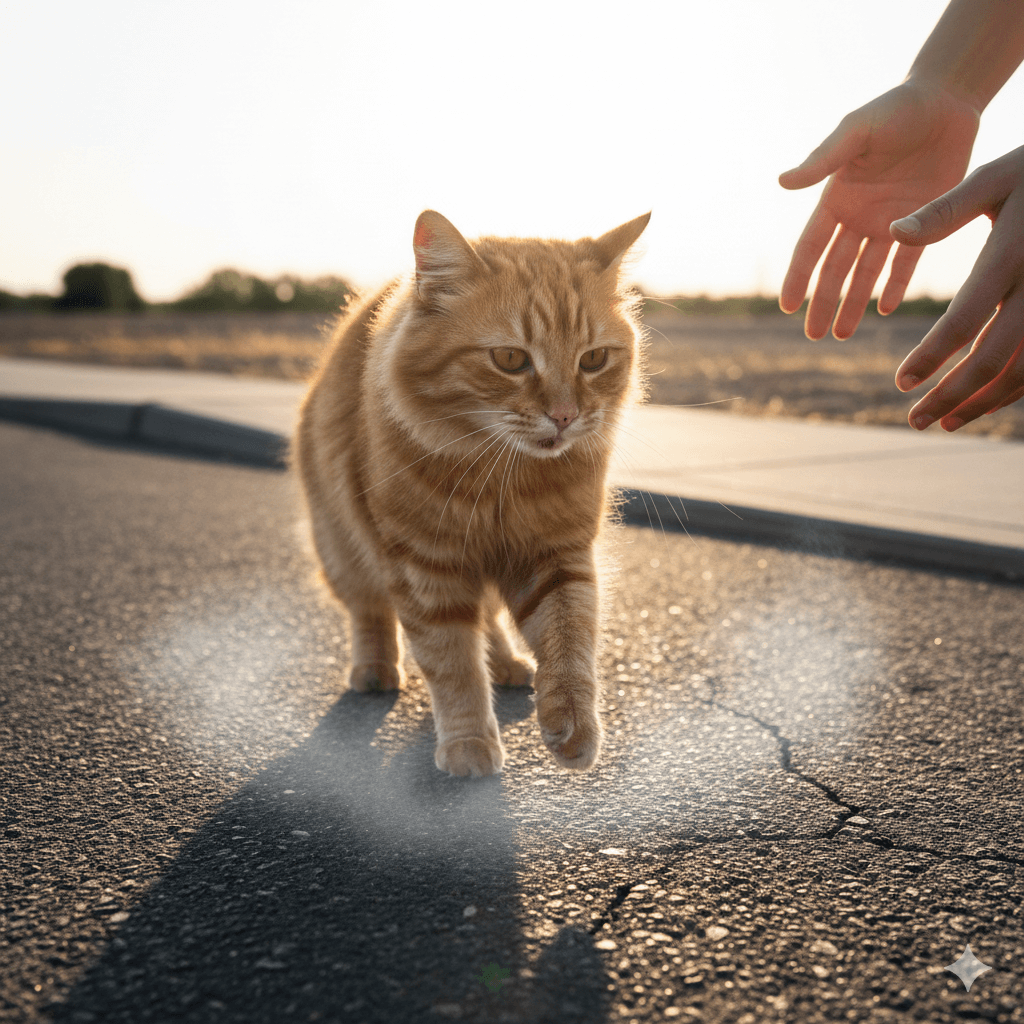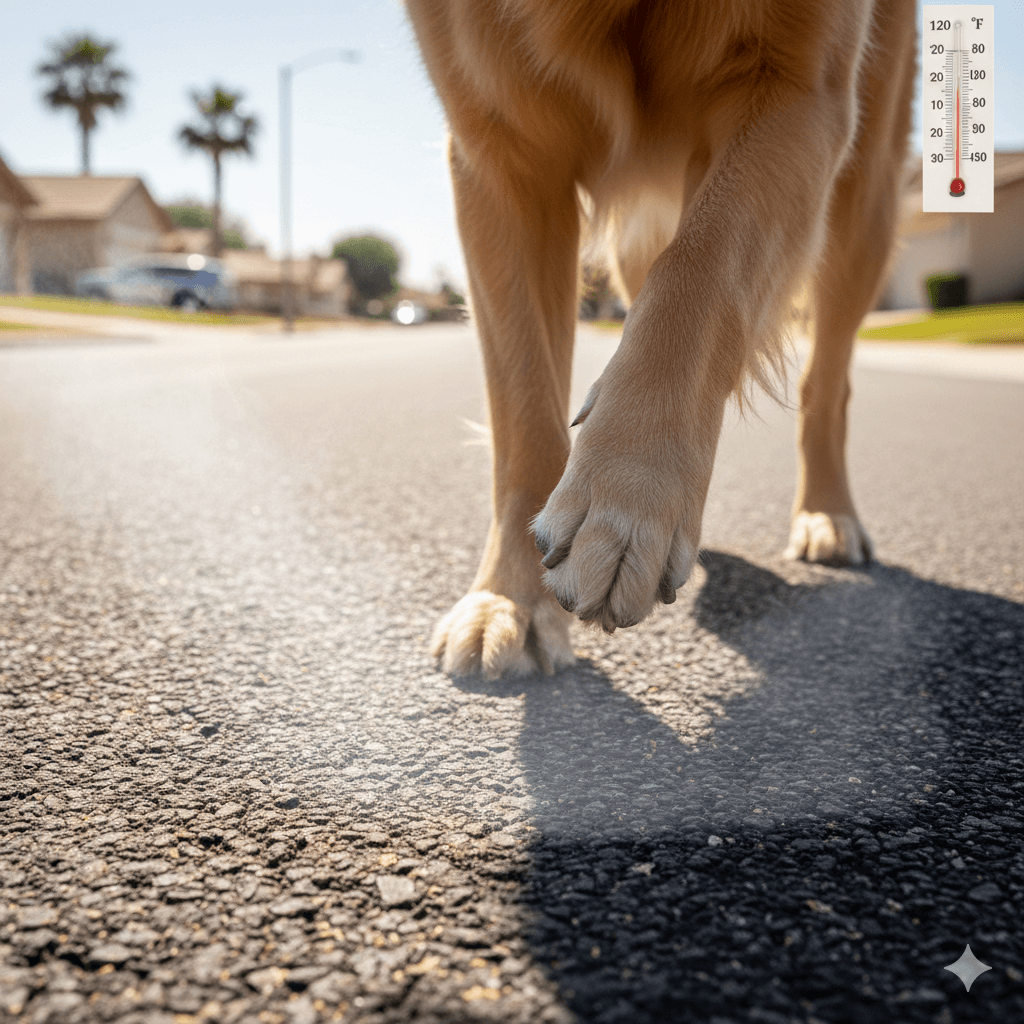Rottweiler vs German Shepherd: Which Breed is Right for You?
When it comes to choosing a loyal and protective companion, both the Rottweiler and the German Shepherd stand out as exceptional breeds. These two iconic dogs are celebrated for their intelligence, strength, and unwavering devotion to their families. However, while they share many similarities, they also have distinct personalities, physical traits, and care requirements. Whether you’re looking for a working dog, a family pet, or a guardian, understanding the differences between these breeds is essential to making an informed decision. In this blog post, we’ll compare the Rottweiler and German Shepherd across various categories, helping you determine which breed aligns best with your lifestyle.
Temperament Differences Between Rottweilers and German Shepherds
The temperament of a dog plays a crucial role in determining its compatibility with your household. While both breeds are known for their loyalty, their personalities differ in subtle but significant ways.
Rottweilers:
Known for their calm and confident demeanor, Rottweilers are often described as gentle giants when properly trained and socialized.German Shepherds:
Highly energetic and alert, German Shepherds are more prone to displaying their enthusiasm through playfulness and curiosity.Protectiveness:
Both breeds are natural guardians, but Rottweilers tend to be more reserved with strangers, while German Shepherds are quicker to assess situations and act accordingly.Trainability:
German Shepherds are slightly more eager to please, making them easier to train for first-time owners. Rottweilers are equally intelligent but may require firmer guidance.Socialization Needs:
Early and consistent socialization is critical for both breeds, though Rottweilers may take longer to warm up to new people or environments.
Understanding these temperament differences will help you choose a breed that matches your personality and lifestyle.
Physical Characteristics of Rottweilers and German Shepherds
The physical appearance of these breeds reflects their unique histories and roles as working dogs. Here’s how they compare in terms of size, coat, and overall build.
Size and Weight:
Rottweilers are stockier and heavier, typically weighing 80-135 pounds, while German Shepherds are leaner and weigh 50-90 pounds on average.Coat Type:
Rottweilers have short, dense coats that require minimal grooming, whereas German Shepherds have a double coat that sheds heavily and needs regular brushing.Color Variations:
Rottweilers are predominantly black with distinctive tan markings, while German Shepherds come in a wider range of colors, including black and tan, sable, and solid black.Lifespan:
Both breeds have similar lifespans of 9-12 years, though proper care can extend their healthy years.Energy Levels:
German Shepherds are more agile and active, excelling in high-intensity tasks, while Rottweilers are powerful and steady, better suited for endurance-based activities.
Their physical attributes highlight the strengths each breed brings to different roles and environments.
Check this guide 👉Serbian Rottweiler vs German Rottweiler: Best 7 Tips!
Check this guide 👉Rottweiler vs Mastiff: Best 7 Expert Tips!
Check this guide 👉Doberman vs Rottweiler: Best 7 Expert Tips!

Rottweiler Traits | German Shepherd Traits |
|---|---|
Calm and confident demeanor | Energetic and highly alert |
Short, low-maintenance coat | Double coat requiring frequent grooming |
Stocky and muscular build | Lean and athletic build |
Reserved with strangers | Quick to assess and adapt to situations |
Ideal for guarding and companionship | Versatile for work, sport, and family life |
Training Requirements for Rottweilers and German Shepherds
Both breeds are highly intelligent and trainable, but their approaches to learning differ slightly. Understanding these nuances ensures successful training sessions.
Rottweilers:
Respond well to firm, consistent leadership and positive reinforcement. They thrive on structure and routine.German Shepherds:
Eager to please, they excel in obedience training and enjoy learning complex commands.Socialization:
Both breeds benefit from early exposure to different people, animals, and environments to prevent fear-based aggression.Exercise During Training:
German Shepherds require more physical activity during training, while Rottweilers prefer shorter, focused sessions.Patience and Consistency:
Both breeds demand patience and consistency, but Rottweilers may test boundaries more frequently than German Shepherds.
Proper training builds a strong bond and ensures your dog becomes a well-behaved and reliable companion.
Health Considerations for Rottweilers and German Shepherds
While both breeds are generally healthy, they are prone to certain genetic conditions that potential owners should be aware of.
Rottweilers:
Common issues include hip dysplasia, elbow dysplasia, and heart conditions like dilated cardiomyopathy (DCM).German Shepherds:
Prone to degenerative myelopathy, hip and elbow dysplasia, and bloat (gastric torsion).Lifespan Impact:
Responsible breeding and regular vet check-ups can help mitigate health risks and extend their lifespan.Dietary Needs:
Both breeds benefit from high-quality diets tailored to their energy levels and age-specific requirements.Exercise and Joint Health:
Controlled exercise is crucial to prevent joint stress, especially in growing puppies of both breeds.
Being proactive about their health ensures a happy and active life for your furry friend.
Common Misconceptions About Rottweilers and German Shepherds
Misunderstandings about these breeds often stem from stereotypes rather than facts. Here are some common myths debunked.
Myth: Rottweilers are naturally aggressive.
Fact: Proper training and socialization create a loving and obedient Rottweiler.Myth: German Shepherds are too high-maintenance.
Fact: While they require exercise and grooming, their adaptability makes them manageable for dedicated owners.Myth: Rottweilers don’t get along with other pets.
Fact: With early socialization, they can coexist peacefully with other animals.Myth: German Shepherds are only suitable for experienced owners.
Fact: First-time owners can succeed with German Shepherds through education and commitment.Myth: Rottweilers are lazy compared to German Shepherds.
Fact: Rottweilers are active but prefer steady, purposeful tasks over constant high-energy play.
Dispelling these myths helps paint a clearer picture of what owning these breeds entails.
Best Activities for Rottweilers and German Shepherds
Engaging in activities that suit their natural instincts strengthens your bond and keeps them physically and mentally stimulated.
Rottweilers:
Enjoy weight-pulling competitions, hiking, and obedience trials that showcase their strength and discipline.German Shepherds:
Excel in agility courses, search-and-rescue training, and herding simulations that highlight their athleticism and intelligence.Interactive Playtime:
Fetch, tug-of-war, and puzzle toys appeal to both breeds’ playful and problem-solving natures.Swimming Sessions:
Many Rottweilers and German Shepherds love water; swimming provides low-impact exercise.Obedience Drills:
Teaching advanced commands or tricks reinforces their training and enhances communication.
These activities ensure your dog remains engaged and fulfilled.
Tips for First-Time Owners of Rottweilers and German Shepherds
If you’re new to either breed, these tips will help you navigate the challenges and joys of ownership successfully.
Invest in Training Classes:
Professional guidance sets a strong foundation for behavior and obedience.Set Clear Boundaries:
Establish house rules early to avoid confusion and reinforce consistency.Prioritize Socialization:
Expose your puppy to diverse experiences to prevent fear or aggression later in life.Monitor Their Health Closely:
Schedule regular vet visits to catch potential issues early and maintain their well-being.Be Patient and Persistent:
Both breeds respond best to calm, patient handling and repetition during training.
With dedication and care, first-time owners can build a rewarding relationship with their Rottweiler or German Shepherd.
Frequently Asked Questions About Rottweilers and German Shepherds
Which breed is better for families?
Both breeds make excellent family pets, but German Shepherds may be more playful and adaptable to children.
Are Rottweilers aggressive?
No, they are not inherently aggressive if properly trained and socialized.
Do German Shepherds shed a lot?
Yes, they are heavy shedders due to their double coat, requiring regular grooming.
Can these breeds live in apartments?
Both can adapt to apartment living if given sufficient exercise and mental stimulation.
How much exercise do they need daily?
German Shepherds require 1-2 hours of intense activity, while Rottweilers need at least 1 hour of moderate exercise.
Choosing Between a Rottweiler and a German Shepherd
Deciding between a Rottweiler and a German Shepherd ultimately depends on your lifestyle, preferences, and ability to meet their needs. Both breeds offer unparalleled loyalty, intelligence, and versatility, but they cater to slightly different personalities and environments. If you value a calm, steadfast companion who thrives on routine, the Rottweiler might be your ideal match. On the other hand, if you’re drawn to an energetic, adaptable dog who excels in various roles, the German Shepherd could be the perfect fit. Regardless of your choice, providing love, training, and care will ensure a lifelong partnership filled with joy and companionship.
Newfoundland Dog Personality: Best 7 Expert Tips! – Discover the gentle, loyal, and protective nature of this giant breed perfect for families.
Can Hot Pavement Burn Your Cats Paws? Best 7 Expert Tips! – Learn how to protect your cat’s paws from hot surfaces and prevent painful burns this summer.
Can Hot Pavement Burn Your Dogs Paws? Best 7 Expert Tips! – Learn how to protect your dog’s paws from hot surfaces and ensure safe summer walks.
Irish Wolfhound Size: Best 7 Expert Tips! – Discover the ideal height, weight, and care tips for this majestic giant breed. Learn how to manage their impressive stature responsibly.




